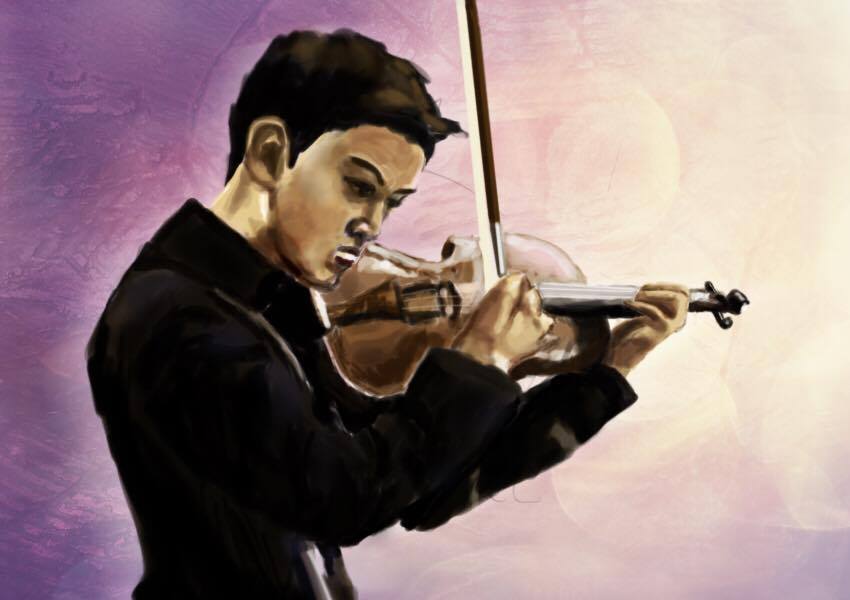“I think that one of these days…you’re going ot have to find out where you want to go. And then you have to start going there.” – Catcher in the Rye (J.D. Salinger)
Bonnections proudly presents Ryan Howland at our next intercultural Book Club event. The 17-year old Canadian violist will read from his book “Musical Awakening”. He recently moved to Bonn from Victoria Island along with his mother Michelle, a piano teacher, to study under Viktor Tretjakov and bring his performance to the next level.
The book, which will be published this fall, tells the story of his long and heart-wrenching journey towards his goal of becoming a world famous violin virtuoso.
Ryan will not only share his struggle to become a professional musician and living his dream, but also play a couple of solo pieces on his violin: Net cor piu non sento by Paganini and the theme from “Schindler’s List” by John Williams.
https://www.youtube.com/watch?v=snLgw_P8qRk&
“Awaking” will be the overall theme of the Bonnections book club meeting on October 5 at Bonn’s Central Library (6 pm). We are going to present a variety of Coming of Age stories from around the world. In German, this genre is called “Bildungsroman”, which literary means formation novel.
J.D. Salinger’s “Catcher in the Rye”, Charlotte Brontë´s „Jane Eyre“, Goethe’s “Werther” and Hermann Hesse’s „Demian“ are famous Bildungsromane. It also includes memoirs, like “The Motorcycle Diaries” by Ernesto “Che” Guevara or “Memoirs of a Dutiful Daughter” by Simone de Beauvoir.
There is a long and storied tradition of this genre and Ryan’s “Musical Awakening” fits right in. It’s called specifically a “Künstlerroman” (artist novel), a sub-genre about the development of an artist. “A Portrait of the Artist as a Young Man” is James Joyce’s first novel. It was published in 1916. The main character, Stephen, is kind of the alter-ego of the Irish writer, tracing his development into the artist he wants to be.
The first ever Arabic novel, titled Hayy ibn Yaqdhan (Alive, son of Awake), was written by Ibn Tufayl in the 12th century. The Arabic philosophical fable is a classic of medieval Islamic philosophy and considered a precursor to the Bildungsroman genre.
Ibn Tufayl, the Andalusian philosopher, tells of a child raised by a doe on an equatorial island who grows up to discover the truth about the world unaided –but also unimpeded- by society, language, or tradition. Hayy’s discoveries on God, nature and mankind, challenge the values of the culture the tale was written as well as those of every contemporary society.
The novel had a significant influence on European literature and Enlightenment after it was translated in 1671 into Latin (Philosophus Autodidactus) and other European languages. In 1719, an English translation inspired Daniel Defoe to write Robinson Crusoe.
The idea of the coming of age has infiltrated all kinds of movies, like “The Graduate” with young Dustin Hoffman, “Dirty Dancing” or “Dead Poets Society”. They all involve someone figuring themselves out and becoming someone new. “Tschick”, an acclaimed book by Wolfgang Herrndorf, was just turned into a movie by Germany’s famous director Faith Akin.





